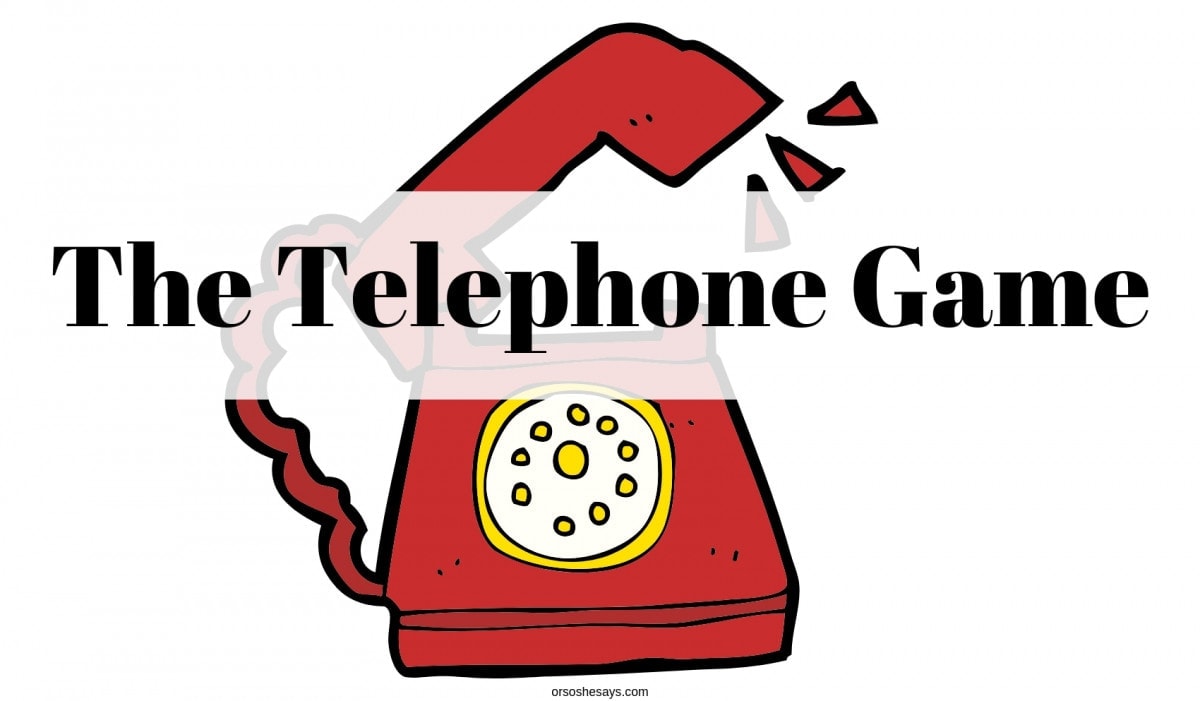

“This study shows how memories normally change over time, sometimes becoming distorted,” Bridge noted.

Rather, it altered memory storage to reinforce the location that was recalled at session two.” “Retrieving the memory didn’t simply reinforce the original association. “Our findings show that incorrect recollection of the object’s location on day two influenced how people remembered the object’s location on day three,” Bridge explained. “If you remember something in the context of a new environment and time, or if you are even in a different mood, your memories might integrate the new information.”įor the study, people were asked to recall the location of objects on a grid in three sessions over three consecutive days. Then they will communicate using only their body language and facial expressions. In the real world word, the Telephone game often goes by a different name: Gossip. The first time they play, they will communicate by speaking. The Telephone game illustrates how quickly a message can be altered even when passed from person to person in a relatively short line. Tell the group that they will be playing a game called telephone in two different ways. The reason for the distortion, Bridge said, is the fact that human memories are always adapting. This body language game below will help students practice by using a twist on the game of telephone. “Every single person has shown this effect,” she said. The published study reports on Bridge’s work with 12 participants, but she has run several variations of the study with a total of 70 people. “Maybe a witness remembers something fairly accurately the first time because his memories aren’t that distorted,” she said.

The findings have implications for witnesses giving testimony in criminal trials, Bridge noted. “Your memory of an event can grow less precise even to the point of being totally false with each retrieval.” “A memory is not simply an image produced by time traveling back to the original event - it can be an image that is somewhat distorted because of the prior times you remembered it,” said Donna Bridge, a postdoctoral fellow at Northwestern University Feinberg School of Medicine and lead author of the paper on the study recently published in the Journal of Neuroscience. The Northwestern study is the first to show this. Thus, the next time you remember it, you might recall not the original event, but what you remembered the previous time. Every time you remember an event from the past, your brain networks change in ways that can alter the later recall of the event. Just released via Distrify in association with Cine-O-Matic, Jason Schumachers The Telephone Game is an involving experimental cinematic adventure that. Play the Telephone ESL game (also known as Chinese Whispers), and watch your students practise fast-paced speaking and listening on a topic of your choice. Turns out your memory is a lot like the telephone game, according to a new Northwestern Medicine study. Remember the telephone game where people take turns whispering a message into the ear of the next person in line? By the time the last person speaks it out loud, the message has radically changed.


 0 kommentar(er)
0 kommentar(er)
